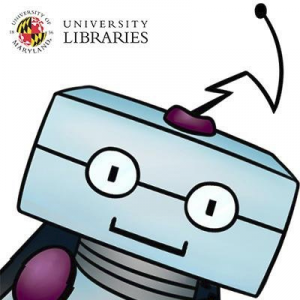This article is more than 5 years old.
This was my first time attending the Access Services Conference in Atlanta, GA. This is the 6th year of the Conference and there were over 300 attendees.
The Keynote speaker was Trevor Dawes, the 2013-14 President of ACRL. Citing recent reports, such as the NMC Horizons Report, he spoke on the future of libraries and the skills needed to meet new trends.
Sessions and highlights included:
Assessment of an ILL Buy Not Borrow program
- The presenter from Northern Illinois University concluded that their program did not save time or money but still considered it a success because they were able to fill requests for items that were difficult or impossible to obtain through ILL. Items purchased were sent to the subject specialist to determine if it would be added to the library collection. 72% were added.
Opening Course Reserves for self-check out
- If we have a spare $31K (CAD), we could set up open shelves for students to retrieve and check out Course Reserves material on their own. This includes a security gate and a self-service check out machine. The library at the University of Toronto Scarborough was circulating Reserves books at a higher rate than the rest of their collection so this plan freed the staff to focus on other tasks. They saw a 30% increase in the use of the Reserves books. Food for thought.
Orienting Access Services staff to other library service points
- Rob Withers of Miami University shared how they changed their training by beginning with a staff-initiated list of questions about other services in the library. Rather than inundate new staff with a building-wide tour using local acronyms, they invited staff from other areas of the library to come to meetings to tell Access Services about their role in the library. In addition to an improved retention rate, they reported that the staff was better informed and could provide better service.
OERs and Open Textbooks
- This session reported on the efforts of libraries to help deal with the cost of textbooks. At the University of South Carolina they initiated a reserves textbook program in 2008. They have over 1,000 in their collection and do not de-accession in case an older edition will meet a need. The cost is $20-25K per year and the circulation of the textbooks accounts for 20% of their total circulations. At Valdosta University the library is encouraging faculty to develop OERs (Open Educational Resources) in place of textbooks.
Marketing a new library service
- When the University of Maryland joined the Big 10 Conference the library gained access to an expedited delivery service called UBorrow. This session outlined the process of promoting the service to the campus community. One of the first steps was to create an adorable mascot named UBot. The others steps were: Plan, Define message, ID audience, Use data to plan, Execute campaign. Because this service duplicated some OCLC ILL services, the library saw a 47% decrease in OCLC requests which they calculated as saving $100K.
A library storage facility’s success
- At the University of Syracuse they have a storage facility that is similar to ours so I wanted to see how they operated. The setting up process was very familiar probably in part because they were working with Chris Brennan from GFA who helped us set up our facility and was at this presentation. Like ZSR, they use ILLiad to process requests but differ in that they purchased a satellite license for ILLiad at the storage facility.
To Boldly Go: E-Reserves from Home-Grown to Standalone to CMS
- So I attended this session thinking I would hear about a new approach to electronic course reserves using a course management system. Instead I learned that the library at the University of West Georgia no longer manages electronic reserves for their faculty. They abandoned their plans to use Ares as a course reserves management system. Citing the Georgia Board of Regents’ policy that faculty are personally responsible for copyright compliance, the faculty use their CMS (Desire2Learn) to post articles. The remaining related services offered are scanning and copyright consultation. They reported that there had been no negative feedback regarding this decision. I’d be interested to hear others’ thoughts on this.
In conclusion, I certainly appreciated the professional relevancy of almost all of the sessions. This was my favorite aspect of the conference. The Atlanta traffic was not. (I live in a town with 1 stoplight.)


3 Comments on ‘2014 Access Services Conference’
well, if Ares doesn’t learn to play nice with Saki…..
There are of course other implications not the least of which is copyright compliance.
Thanks for the report Ellen. I’m glad you got to go.
Thanks for sharing Ellen.
So interesting, Ellen. I loved the part about Course Reserves self-checkout!